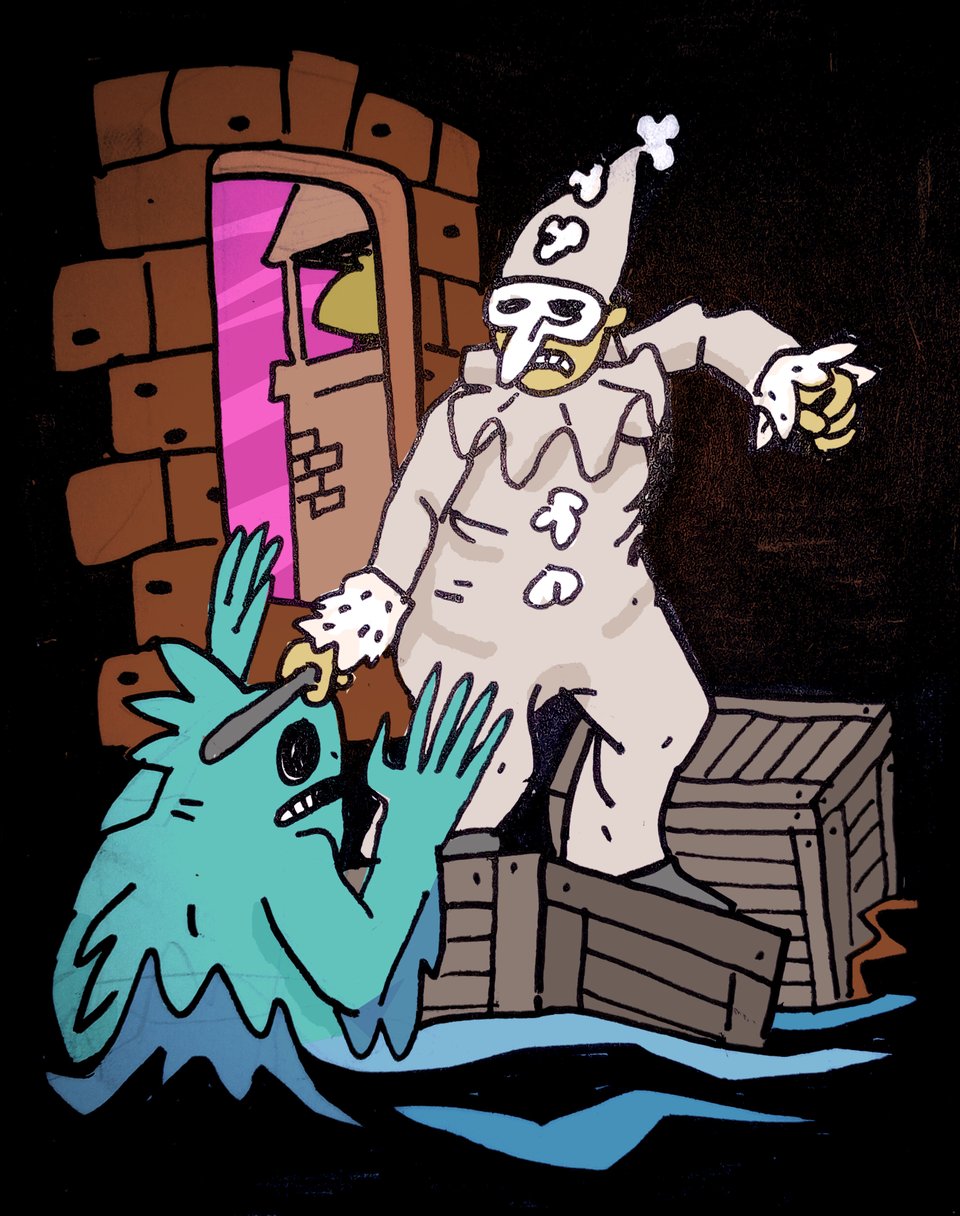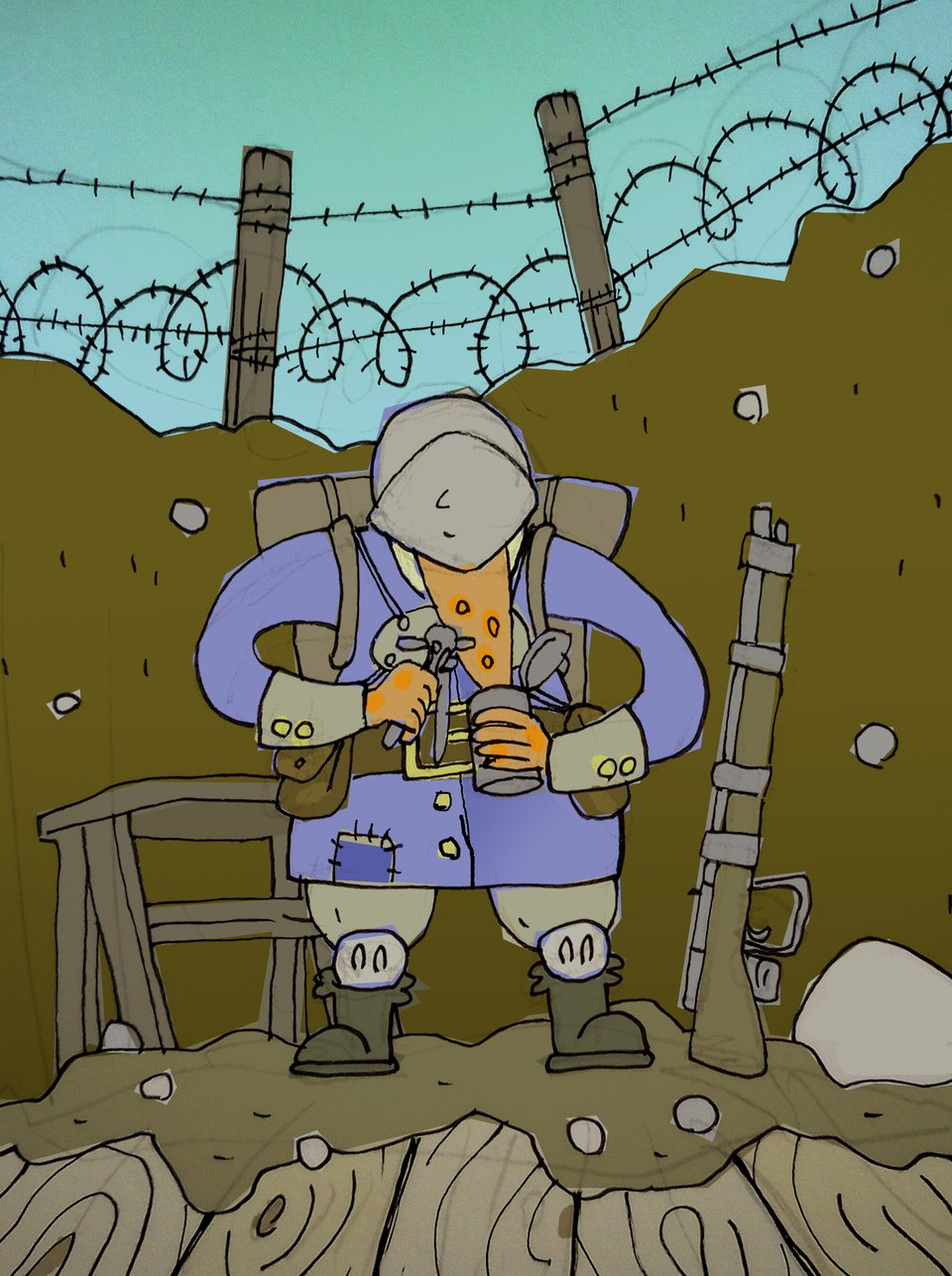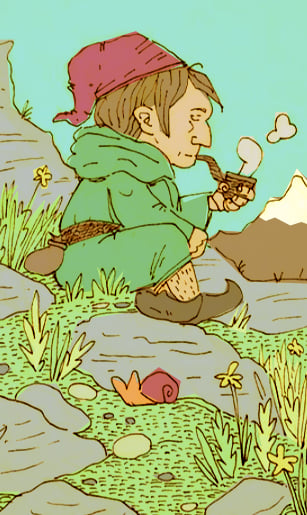Episode 002 - The Context of Success

There’s an anecdote about Bernie Wrightson I hear a lot. Bernie Wrightson, for those who don’t know, was an esteemed comic book artist who drew lavishly rendered horror comics in the late 1960’s until the mid 2010’s. The anecdote is about his drawing style, which features heavy hatching, which he was supposed to have learned from studying the etchings of the 17th century onward. However, anecdotally, it was said that he didn’t know what an etching was, and so Wrightson drew the way he did with pen and ink, just assuming that these things were done as such.
This anecdote is likely false, as Wrightson grew up reading EC Horror comics and idolizing the likes of Frank Frazetta and his peers, but someone told it somewhere, to someone who was impressed enough to tell it to me, and that is special. Maybe if we investigate the artistic lineage of Frazetta, Graham Ingels, and John Gagney, we’ll find those etching masters of old and quasi-vindicate our fable’s OP. What is delicious is that whoever this armchair historian was, their assumption that Wrightson couldn’t possibly have inked and rendered as he did without studying the etchings, is reflected in the assumptions by the fictionalized Wrightson.
This is likely a turducken’s worth of logical leaps, all to explain something impressive, but not exactly fantasical. Maybe the context that our resources can lend us steals some of the magical realism from the legend of the thing, but aren’t we comforted by the humanization of a titan within the field? Wrightson was a human after all, who was good at drawing, and worked hard to get better at it. That’s a success story, and we can map it to our own experinces of trial and error and eventually (hopefully) progress. Does it rob anyone’s legacy of impressiveness if we can see our own triumphs in the same light?
Well I don’t know; I’m just a clown at a keyboard.
One of the things I say I will do one of these days is “I will renegotiate my definitions of success.” I haven’t gotten there yet, and I hope to because I think I’ll be happier, or that’s what I tell myself. While I’m not the only person who struggles with their expectations for themselves, it’s demoralizing to have goals that you always feel like you’re working towards, but never seem to be able to achieve. Its like treading water, which is already a simile for too many other things in our lives, and it’s exhausting.

When I was a kid, I wanted to be famous. I wanted to be known for the cool things I drew, and the stories I could tell, and the hard work I was capable of. I think I can blame a lot of that on R.L. Stine, you know, the creepy guy who wrote all those (or at least a dozen or so) Goosebumps books. I used to borrow them from the library like a contestant from Supermarket Sweep, wiping entire bookshelves of Goosebumps into my backpack. In the backs of these books, there were mail-in sheets with lists of titles, a catalog of Stine that you could send in with a money order and have the books mailed to your door. Impressed as I was, I assumed this is what success looks like as a storyteller, but because I was literally a child, I had no context or understanding for what labors like these are, or how ghost writers and book contracts worked. My assumptions were based off the image of an old jewish guy with a typewriter, being spooky and making books, and now that I’ve had a decade of experience being spooky and making books, I can safely say that it takes more than that to be successful… Probably.
Sometime around 2012-2016, I became aware of a photo of Jeff Lemire’s workspace. It was gorgeous; there was a desk and several eight foot panels that looked like a cross between a crime wall, a thumbnail board, and a calendar. His schedule was organized for maybe half a dozen monthly books he was writing for DC Comics and Image at the time, and that exploded into story arc structures and chef’s kiss, it was a sight to behold. I drooled over that level of organization and discipline, and wanted nothing more than a wall like that of my own. By 2017 I achieved that goal; I had that wall, and more than 20 zines under my belt, but then I realized… Jeff Lemire’s comics from that period in time were not good. He was doing truckloads of work, but on such a tight schedule that none of the work had the same heart as his Lost Dogs or Essex County. To me his stories had become homogenously watery, and even though he was creating a lot, living my dream of making and making it, it no longer felt like a celebration of creativity, and it scared the shit out of me.
In the future, or last Tuesday, I had a conversation.
I have been very focused this year; on staying alive, on staying sane, on staying in the black, and on making cool things and sharing them with people. Unsurprisingly this is a lot of work, and I can see the strain showing itself in the things I make. I talked a lot about how sharing what work I do gives me anxiety, because to me all these disparate projects make me look like I’m unfocused, devoting so much energy to so many things but not accomplishing or finishing anything. It can be soul-crushing to process that as a lack of success, or to have life and reality change the way that progress looks. However, at risk of sounding saccharine, maybe it doesn’t have to be like that all the time?

Quick hypothetical. You are a dictionary; how would you define comparison, context, and success? The thesauruses might be your sexy rival, but at the end of the day you’ve got similar tools, but are on completely different journeys.
Ok, now you’re a clothes dryer with a few knobs and dials. How can you adjust your ideas of success by using context to avoid comparison either rattling you to death or leaving you with a pile of wet laundry?
Alright, no more hypotheticals. That was pretty weird, but I think you get the idea. R.L. Stine had ghostwriters, Jeff Lemire had deadlines, and a fictional Bernie Wrightson learned how to draw from some very cool etchings. Don’t put dictionaries in the tumble dryer or else you’ll have to read some fine print.
Someone once said, “I think I’d be happier if I reexamined my definitions of success, and the conditions of the success of others, instead of trying to live up to a mythologized platonic ideal.” I don’t think it was me, but if it was, hopefully I’m taking my own advice.
Actually.
Hey.
I have a Photoshop subscription that costs about 20 bucks a month, that I wonder if its worth keeping since I don’t use it as much as I’d like to. My problem is that to use it as intended, I need to set up my tablet, find my stylus pen, get my headphones in, and tune out the world for a number of hours if I’m to make or edit anything of a certain quality of polish. I felt bad about my investment despite it being in a tool that I need for many of my projects and commissions.
And then I remembered that when I was in high school I didn’t have Photoshop. I had MS Paint and a trackpad, and I would make animations and paintings with the limited tools I had, despite those limitations. Because I had this mental block on what protocol and setup, I wasn’t allowing myself to make, joyously or otherwise. Something you might notice from this newsletter is that all the art that appears here has something in common. None of them are perfectly polished pieces. All of them were made with photos I took of drawings I didn’t hate, and then they were processed through Photoshop, but with my handy select and fill tools until I didn’t want to use my trackpad anymore. Perfect is the enemy of good, and unlike the art I hadn’t been making, these pieces were finished. I didn’t have to mourn the unmade illustrations if it turned out I could just change my definition for success.
This has been a very long reminder to drink water, take your meds, and cut yourself some slack, but I think we could all use someone who gives us permission to treat ourselves better. For instance, I’m pressing the send button on this newsletter as we speak, not because its perfect, but because it generally gets its points across, and its far better than any newsletter you didn’t get.
Sometimes
Its okay to move the goalposts,
Especially
If it keeps you in the game.